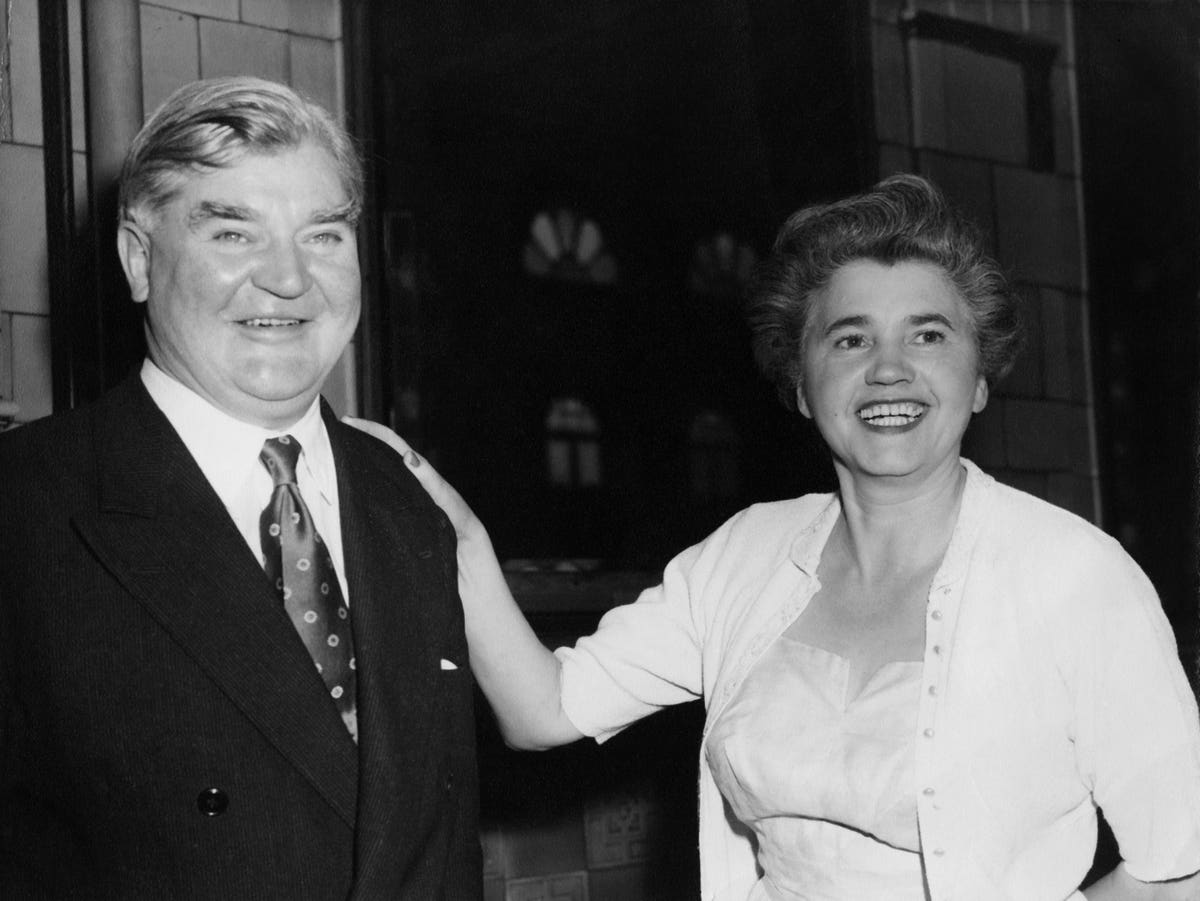Seventy-five years ago today, British lawmakers launched the country’s famous National Health Service.
The sweeping legislation saw the government take ownership of hospitals previously run by councils and charities. Controversial at the time — and, in its first few years, a major source of overspending — the health service went on to become one of the country’s most beloved public institutions.
Today, this massive public health system — which is facing major challenges — still provides the bulk of healthcare free at the point of use for residents.
Providing free healthcare was a major pledge for the post-war Labour government. But it’s then-health secretary Aneurin “Nye” Bevan who is remembered as the “father of the NHS.”
Who was Aneurin Bevan?
Born in the mining town of Tredegar in southeast Wales on 15 November 1897, to a miner father and a seamstress. His father passed away in 1945 from lung disease linked to years of coal dust inhalation.
Raised a non-conformist Christian, he later became an atheist. He also rejected the U.K.’s then-popular Liberal party in favour of socialism as a teenager.
In 1919, Bevan left Wales with a scholarship to attend Central Labour College in London. He returned home in 1921.
Bevan’s early career was shaped by the country’s 1926 general strike. Already an experienced minor and trade union activist, he took a role with his local Miner’s Lodge union after a period of unemployment.
Known for the oratory skills he developed in response to a stammer, he quickly became an influential union leader.
Already active in politics, Bevan was elected as a local councillor for in 1928, and a Labour party member of parliament for Ebbw Vale in 1929.
In parliament, he was a vocal critic of conservative leaders Neville Chamberlain and Winston Churchill, as well as some of those within his own party.
The left-wing thinker married fellow MP Jennie Lee in 1934 and together, the pair supported such causes as the socialists in the Spanish Civil War.
Post-war reformist
In 1945, the Labour party led by Clement Atlee won a landslide general election on a manifesto that pledged to invest in housing, education and free healthcare.
Atlee chose Bevan as his Minister of Health: a role once considered relatively low-level.
Bevan quickly developed plans for a National Health Service, inspired by a local subscription-based healthcare system in his hometown.
Bevan later wrote in his socialist essay book In Place of Fear that “no society can legitimately call itself civilised if a sick person is denied medical aid because of lack of means.”
Passed despite opposition from the Conservative party and doctor’s union the British Medical Association, the National Health Service Act 1926 promised healthcare free at the point use for anyone in the U.K. On July 5 1948, this legislation came into force.
Although charges were introduced over time for certain services like prescriptions and routine dentistry and optometry, it remains mostly free for users today.
During his time in the role, Bevan also ushered in a major housing programme that saw the buiding of hundreds of thousands of new homes. But he faced several challenges, including a lack of building materials following the war.
He became Minister of Labour in 1951, but resigned just a few months later over proposals to introduce charges for prescriptions.
Later years
Bevan remained MP for Ebbw Vale until his death in 1960. Committed to his socialist prinicples throughout his life, he continued to have a strong influence on the left-wing members of his party, nicknamed “Bevanites”.
He was critical of prominent Labour members closer to the right, including Hugh Gaitskell, who led the party from 1955 to 1963.
In 1959, Bevan became Deputy Leader of the Labour Party. He held the role for a few months before his death at the age of 62.
In his spare time, he was an hobbyist farmer, looking after animals like pigs and cows.
He passed away in his sleep at his home in Buckinghamshire some time after doctors discovered he had stomach cancer.
Read the full article here





